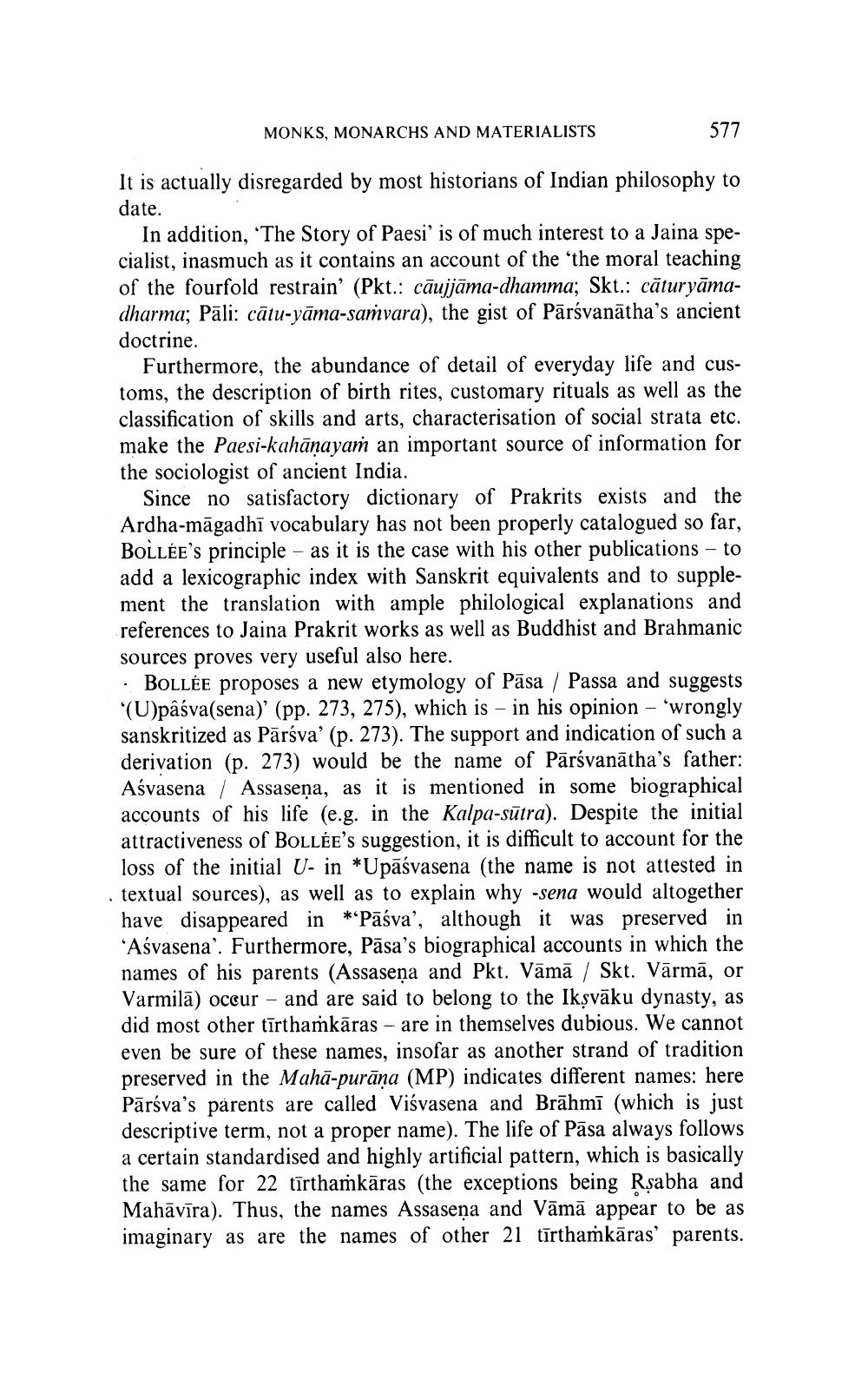Book Title: Monks Monarchs And Materialists Author(s): Piotr Balcerowicz Publisher: Piotr Balcerowicz View full book textPage 7
________________ MONKS, MONARCHS AND MATERIALISTS 577 It is actually disregarded by most historians of Indian philosophy to date. In addition, 'The Story of Paesi' is of much interest to a Jaina specialist, inasmuch as it contains an account of the 'the moral teaching of the fourfold restrain' (Pkt.: cāujjāma-dhamma; Skt.: cäturyāmadharma; Pāli: cātu-vāma-samvara), the gist of Pārsvanātha's ancient doctrine. Furthermore, the abundance of detail of everyday life and customs, the description of birth rites, customary rituals as well as the classification of skills and arts, characterisation of social strata etc. make the Paesi-kahānayam an important source of information for the sociologist of ancient India. Since no satisfactory dictionary of Prakrits exists and the Ardha-māgadhi vocabulary has not been properly catalogued so far, BOLLÉE's principle - as it is the case with his other publications - to add a lexicographic index with Sanskrit equivalents and to supplement the translation with ample philological explanations and references to Jaina Prakrit works as well as Buddhist and Brahmanic sources proves very useful also here. · BOLLÉE proposes a new etymology of Pāsa / Passa and suggests (U)pâśva(sena)' (pp. 273, 275), which is - in his opinion – 'wrongly sanskritized as Pārsva' (p. 273). The support and indication of such a derivation (p. 273) would be the name of Pārsvanātha's father: Aśvasena / Assasena, as it is mentioned in some biographical accounts of his life (e.g. in the Kalpa-sūtra). Despite the initial attractiveness of BOLLÉE's suggestion, it is difficult to account for the loss of the initial U- in *Upāśvasena (the name is not attested in . textual sources), as well as to explain why -sena would altogether have disappeared in **Pāśva', although it was preserved in 'Aśvasena'. Furthermore, Pāsa's biographical accounts in which the names of his parents (Assaseña and Pkt. Vāmā / Skt. Vārmā, or Varmilā) occur - and are said to belong to the Iksvāku dynasty, as did most other tīrthamkāras - are in themselves dubious. We cannot even be sure of these names, insofar as another strand of tradition preserved in the Mahā-purāna (MP) indicates different names: here Pārsva's parents are called Viśvasena and Brāhmī (which is just descriptive term, not a proper name). The life of Pāsa always follows a certain standardised and highly artificial pattern, which is basically the same for 22 tīrthamkāras (the exceptions being Rṣabha and Mahāvīra). Thus, the names Assasena and Vāmā appear to be as imaginary as are the names of other 21 tīrthamkāras' parents.Page Navigation
1 ... 5 6 7 8 9 10 11 12
